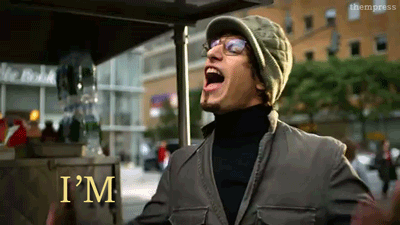Just last quarter, I was assigned the daunting task of writing an eight-page research paper for my Art History class. The approach that I took to this assignment was essentially the usual research process I undergo:
The first step was to decide on a topic of choice. This involved going back over previous material I had learned, and deciding on something that interested me the most. After all, if I was going to have to write eight pages on the subject, I wanted to make sure it was something I would be interested in. From there I had to develop a clear thesis that made a claim about the particular topic, along with specific points that I would address throughout the research paper. I usually do this whether I’m writing a research paper or not because I like to map out and know exactly what I’m looking for before I begin the actual research.

Once I decided on a topic and narrowed it down even further with a thesis, I had to then begin the hardest part, actually researching. Much like Liw Ekdab, subject of “The Great Research Disaster”, I immediately began my background research at none other than the infamous Wikipedia.Yes, I am aware of the fact that any user can change the information of any page, but this also means that the website is an accumulation of global knowledge. Besides, I never rely on Wikipedia for specific dates, numbers, or time periods, but rather to gain adequate background knowledge about a certain event/person. Using Wikipedia, I was able to jot down key events or people that I could further research using more reliable resources.
Unlike Liw, I used the college’s library database as a way to find books, simply because I thought it would be the fastest way to find a reliable resource that was available for checkout, as opposed to “googling” books, which would have simply given me an endless list of books that although may have pertained to my subject, might not have actually been available in the library.
I did however use Google Scholar, as I usually do. As a college student, I find that it’s an extremely convenient source of information as most of the articles published are reliable and packed with information, and it requires no checking out as many of the articles are available online for free. Many times, especially if I encounter an article that’s longer than ten pages, I’ll do exactly what Liw did, and simply read the abstract to see if it gives me the answers I want. If not, I can always read further into the source.
Though I may employ similar researching methods to those of Liw, I would never go as far as making up a quote or guessing the source. The way I justify making “shortcuts” is by asking myself whether the information stays valid, whether the sources I use are given enough credit (which I give in the bibliography), and whether the information I’ve attained is adequate enough to write a solid paper.
Overall, research is a long and daunting process, but when done with the right strategies and approaches, you can save a lot of time and pain while still producing a paper to be proud of, just like I did.
Images Cited:
http://taxprof.typepad.com/.a/6a00d8341c4eab53ef017ee55622e6970d-800wi
http://edtech2.boisestate.edu/darlagrant/Images/conceptmap.gif


 “It’s about balance”
“It’s about balance”


 Take, for example, the job of a motor factory worker. In such an occupation, important skills such as planning to ensure a fluid and on-time schedule, communication for optimal cooperation and understanding, measuring and calculating to guarantee proper dimension requirements are met, and reading to know how to put a machine together, are all required. As I mentioned before, unlike in a classroom, where knowledge is tested through tests and quizzes, in a working environment, knowledge is tested through immediate real-world application, where its employees are driven by the need to learn and adapt quickly if they want to succeed in their job.
Take, for example, the job of a motor factory worker. In such an occupation, important skills such as planning to ensure a fluid and on-time schedule, communication for optimal cooperation and understanding, measuring and calculating to guarantee proper dimension requirements are met, and reading to know how to put a machine together, are all required. As I mentioned before, unlike in a classroom, where knowledge is tested through tests and quizzes, in a working environment, knowledge is tested through immediate real-world application, where its employees are driven by the need to learn and adapt quickly if they want to succeed in their job.